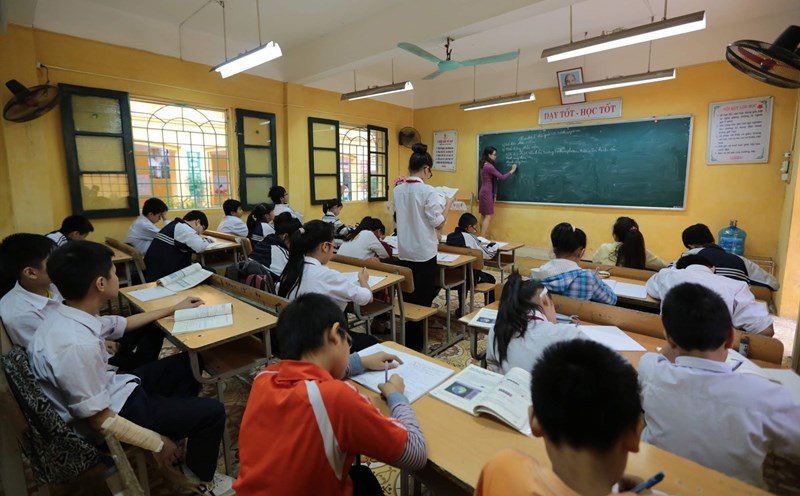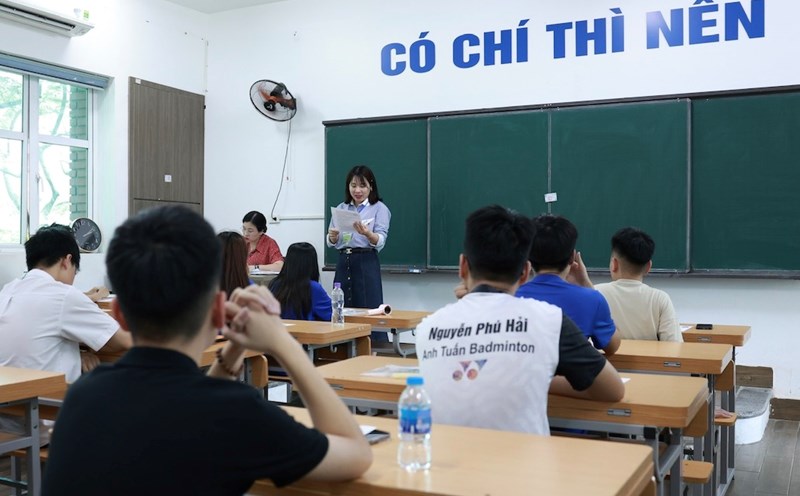Violations of the reputation, honor and dignity of teachers may be prosecuted for criminal liability
On June 16, 2025, the National Assembly passed the 2025 Law on Teachers.
The Law consists of 9 chapters and 42 articles, effective from January 1, 2026, and is expected to create a breakthrough in caring for, honoring and developing the teaching staff - the key force in the country's education cause.

One of the notable points of the Law on Teachers is the regulation on handling violations of the reputation, honor and dignity of teachers in Article 37. Specifically as follows:
Organizations and individuals who violate the reputation, honor and dignity of teachers will be subject to disciplinary action, administrative sanctions or criminal prosecution; if they cause damage, compensation must be paid according to the provisions of law.
Violations of the reputation, honor and dignity of teachers occur within the scope of educational institutions or while teachers are performing professional activities, they must be strictly handled according to the provisions of law.
Thus, from January 1, 2026, organizations and individuals who violate the reputation, honor and dignity of teachers can be prosecuted for criminal liability.
Teachers enjoy many special benefits
Article 8 of the 2025 Law on Teachers stipulates the rights of teachers as follows:
1. Teachers in public educational institutions exercise the rights according to the provisions of the law on civil servants and other relevant legal provisions. Teachers in non-public educational institutions exercise their rights according to the provisions of the law on labor and other relevant legal provisions.
2. In addition to the provisions of Clause 1 of this Article, teachers also have the following rights:
a) To be taught and educated in accordance with training expertise; proactively distribute time and arrange content according to educational programs; select and use documents and learning materials for teaching and education activities; comment, evaluate, participate in rewarding and disciplining learners according to the provisions of law and regulations on organization and operation of educational institutions;
b) To conduct scientific research and transfer scientific research products, enjoy preferential policies in scientific research activities, participate in the management and operation of enterprises established by higher education institutions, operate in the fields of scientific development, innovation, application and technology transfer according to the provisions of law;
c) To be respected and have their reputation, honor and dignity protected; to be treated equally in their activities and career development;
d) Having summer vacation and other holidays as prescribed by law;
d) Being trained and fostered to improve qualifications;
e) To participate in teaching and scientific research at other agencies, organizations and units according to the provisions of law and the regulations on organization and operation of educational institutions.
For acts that violate the reputation, honor and dignity of teachers as follows:
Organizations and individuals who violate the reputation, honor and dignity of teachers will be subject to disciplinary action, administrative sanctions or criminal prosecution; if they cause damage, compensation must be paid according to the provisions of law.
Violations of the reputation, honor and dignity of teachers occur within the scope of educational institutions or while teachers are performing professional activities, they must be strictly handled according to the provisions of law.
Thus, from January 1, 2026, organizations and individuals who violate the reputation, honor and dignity of teachers can be prosecuted for criminal liability.











